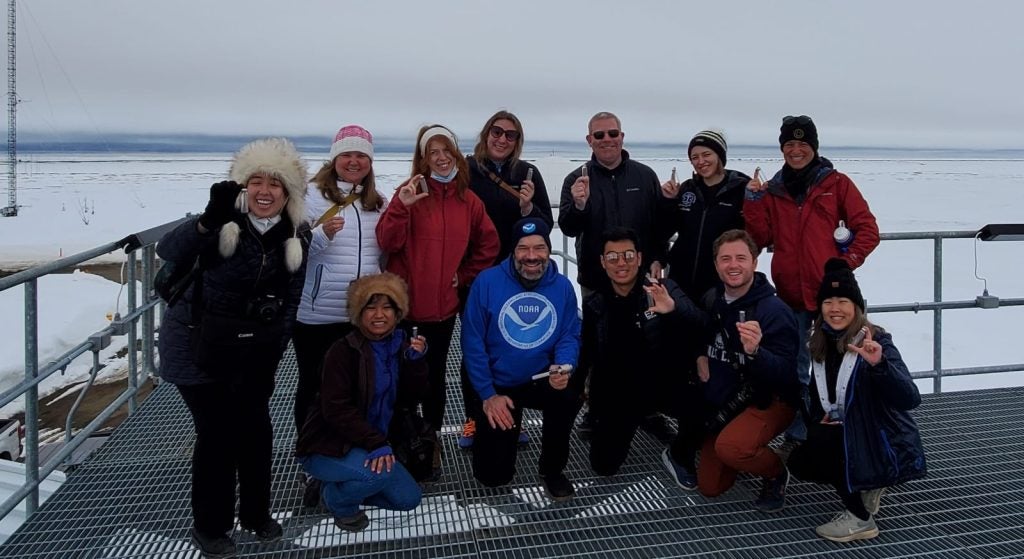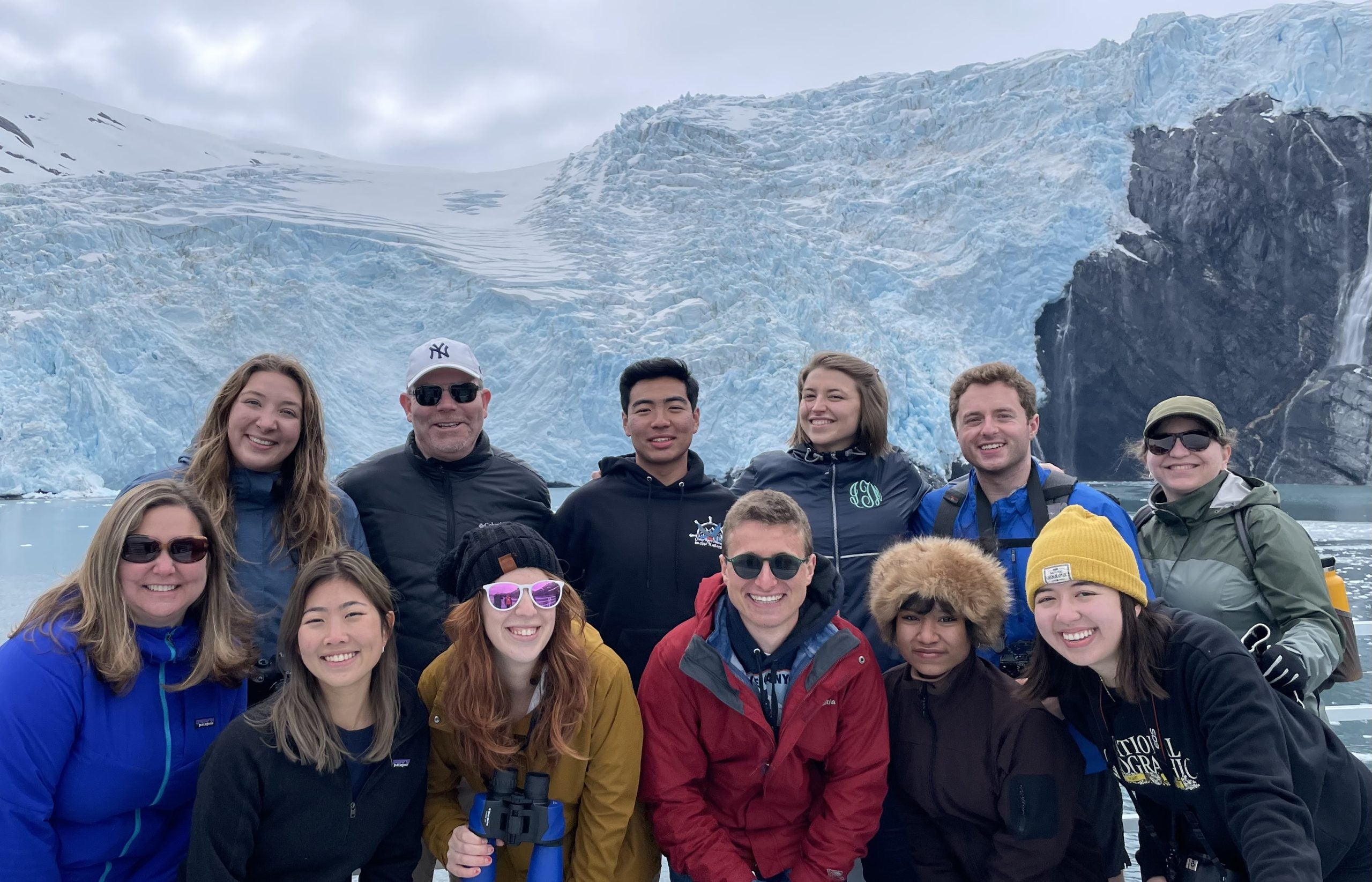STIA Students and Faculty Travel to the Arctic as part of SFS Centennial Lab Course
STIA Students and Faculty Travel to the Arctic as part of SFS Centennial Lab Course: Problem Solving in a Destabilized Arctic
This summer, nine SFS students headed to Alaska to study the effects of Arctic climate change, as part of the STIA Centennial Lab Course: Problem Solving in a Destabilized Arctic. STIA Professors Jeremy Mathis and Joanna Lewis, and SFS Global Experience Program Director Jamie Welling, led the team to Anchorage, Whittier, Seward, Utqiaġvik (Barrow), and Fairbanks, to visit some of Alaska’s remaining glaciers and tour important marine and atmospheric research facilities.
There are few places on Earth where the convergence of science, technology, policymaking, and diplomacy are more critical than in the Arctic. The Arctic region is undergoing a rapid transformation due to climate change. As a result, sea ice is vanishing, glaciers are melting, coastal erosion is destroying communities, and ecosystems are being devastated. From the food supply to sea level rise, to changes in weather patterns over the continental United States, to national security concerns, the transformation of the Arctic landscape is going to disrupt U.S. domestic and foreign policy for the foreseeable future.
Over the course of their semester, each student studied a specific subject area in Arctic climate change and current policy response. For example, Kirk Zieser (SFS ‘22) focused on the United States’ long range nuclear defense missiles at Fort Greely in Alaska and how permafrost thaw threatens their long term viability. Isabella Turilli (SFS ‘22) examined deficits in disaster preparedness in remote parts of the arctic. Megan McGuire examined the future of disease surveillance in the Alaskan Arctic. And Syudney Yin explored financing mechanisms for renewable energy powered microgrids to bring energy to arctic communities.
At the end of the semester, students participated in the 2nd Annual Georgetown Arctic Solutions Forum where they presented their project proposals for the class. The forum featured keynote remarks by Monica Medina, the Assistant Secretary for Oceans and International Environmental and Scientific Affairs at the US Department of State. Medina, previously an adjunct professor in the STIA program, spoke about the importance of the arctic for the United States and the work of the State Department.
In Alaska, students were able to experience the subjects discussed in class first hand. They hiked up Exit Glacier, now reduced to a sliver of ice. They visited Alutiiq Pride Marine Institute, a marine research institute, and learned about the organization’s work on Alaskan food security. In Fairbanks, they learned about the Alaskan climate at the University of Alaska and visited the Trans-Alaska Pipeline. In Utqiaġvik (Barrow), the students took air samples for greenhouse gas monitoring at the National Oceanic and Atmospheric Administration’s Atmospheric Observatory and got the chance to see a polar bear in the wild.

Caption: The Arctic C-Lab visiting the NOAA Barrow Atmospheric Baseline Observatory.
Ultimately students and faculty alike felt that this unique experience changed the way they thought about climate change and the arctic. Zieser reflected, “I did a semester’s worth of research into the Alaskan Arctic, and having the opportunity to visit the Arctic made everything — the issues, the people, the places — feel much more real. I now have a sense for exactly what’s at stake when thinking about the existential threat climate change poses to these communities.”
Sarah Keisler (SFS ‘22) observed, “I don’t think I truly understood how amplified climate change is in the far north, nor how urgent climate change is. I’m very lucky to have seen the physical effects. I believe if everyone could witness this, we would have a far greater chance of stopping climate change. For me, it has solidified my goal of going into the field of climate and international affairs.”
This is the second time this course has been offered. Read about the 2020 Centennial Lab trip to Alaska here. Professor Mathis plans to offer this course again in spring 2023.
